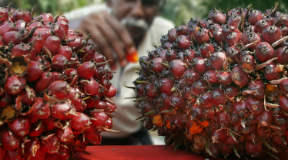2024 is a special year because the entire nation of Indonesia faces a major event every 5 years. Not only do we elect the president, many other public officials and legislators from various levels of government are simultaneously elected to move forward the aspirations of the people and represent the interests of their constituents.
Politically, this year is a very lengthy one, as nearly the entire year will be consumed by intensive political activities. This condition will impact business activities, which in turn affect corporate communication activities, including public relations (PR).
The main cause is the fact that the 2024 Presidential Election will likely stretch over two rounds. This means that after the first round of voting scheduled for February 14, 2024, there will be a second round on June 25, 2024. And the elected president will be inaugurated in November 2024. Thus, for almost a full year, all of us will be impacted by or preoccupied with political activities, including the effect of political developments on businesses in Indonesia.
To claim victory in the presidential election, a contesting ticket must first of all have more than 50% of voters cast their ballot in its favor. Additionally, the pair must win more than 20% of the votes in at least half of the provinces. With three pairs of candidates, the combination of these two requirements poses a significant challenge and two rounds become inevitable.
The Presidential Election and its Impact
As stated above, the presidential election will be the biggest factor determining the climate and conduct of business this year. Consequently, it also affects PR activities and corporate communication in general as all parties will wait for the final outcome and in the meantime take extraordinary care in delivering any message to the public.
There is an exception however, namely those who have chosen from the outset to advocate for a particular candidate, with the consequence that those who have a different choice will distance themselves, at least in the short term.
It can be estimated that the larger the company, the more cautious its approach to all matters related to corporate communication. State-owned enterprises (SOEs) are no exception, they actually may be even more cautious because they will do their best not to appear biased towards any particular pair of candidates. The fate of companies owned by the state and decision-makers within them is in the hands of parties that will be in charge in the future government. Thus, it is reasonable to assume that the activities of SOEs will be confined to matters purely related to the products or services they offer.
The situation described above will guide corporate communication practitioners and overall PR activities. It is anticipated that PR activities will decline this year except those related to corporate image building. On the other hand, marketing communications may occupy a more prominent position as its is not directly affected by the political situation. Meanwhile, within the public affairs sphere, stakeholder management, issues management, and socio-political advisory are areas likely to benefit from heightened corporate attention.
Noke Kiroyan
Chairman , Kiroyan Partners



